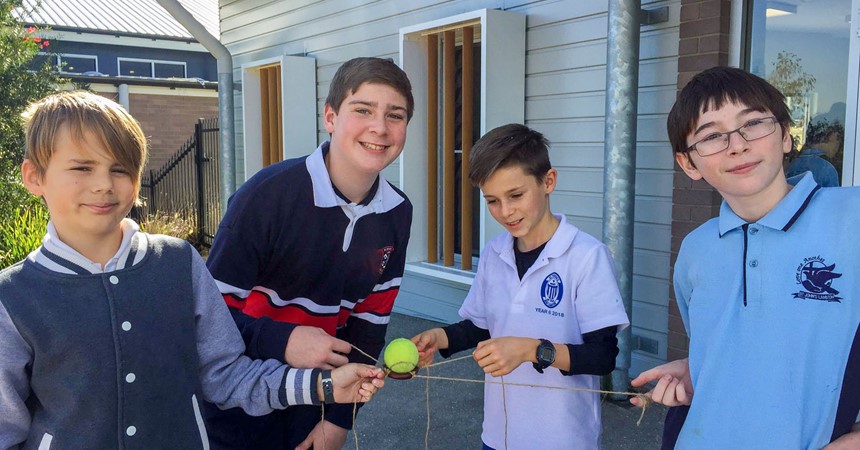The CSO Gifted Education K-12 Policy (2017) and Gifted Education K-12 Procedure were created to assist schools in providing appropriate learning opportunities for students identified as gifted.
Rolling out the gifted education initiative last year, the implementation of the 2017 Gifted Education K-12 Policy and Procedure documents began in conjunction with the cluster program.
This program consists of primary and secondary schools in the diocese that work together in clusters to strengthen the opportunity for gifted students to succeed and excel in their learning throughout their schooling.
These schools are known as Gifted Education Lead Schools (GELS). GELS are schools that have identified Gifted Education as a part of their school improvement plan and demonstrated a motivation, willingness and commitment to implementing Gifted Education across the curriculum.
“We have a Kindergarten to Year 12 approach,” said Sally Brock, CSO Education Officer for Gifted Education.
“If a student comes into Kindergarten and is identified as gifted then we now have a whole and integrated pathway with information shared between schools, strengthening the transition processes from Kindergarten to Year 12.”
The GELS are committed to establishing a school and cluster committee; identifying gifted students; developing an action research; collaborating within the school and across the cluster; and participating in professional learning and development to create a change in culture and improve outcomes for students.
“We started with 15 schools across the diocese and we added five more last term – three more schools are coming on board in term four and we are identifying schools for next year,” said Sally.
“I think our structure is innovative and will prove to be effective.”
This cluster process helps to strengthen the links between the high schools and their associated feeder primary schools and encourages a stronger and smoother transition for students from Year 6 to Year 7.
There are currently 20 schools involved in the program, with seven in the Central Cluster, two in the Manning Cluster, four in the North Cluster, three in the Lochinvar Cluster and four in the All Saints Cluster.
The aim is to have all schools involved in the cluster structure within the next few years.
Another major aspect of the new Gifted Education Policy is the implementation of the Virtual Academy. There are currently 35 students in Years 5, 6 and 7 from 11 schools across the diocese taking part in the Virtual Academy, which provides gifted students with units of work that go beyond what is provided in a regular classroom.
“There are differentiated tasks in the classroom and then the Virtual Academy is on another level,” explained Sally.
“The Virtual Academy really challenges students, linking work to real-world problem solving and across different subject areas, which gives them lots of choices for their areas of interest and passion.”
The Virtual Academy is a flexible online platform that can be accessed 24-hours-a-day. Participating students from Years 5, 6 and 7 complete Virtual Academy research and activities instead of some of their regular class work.
Students from Year 8 are expected to join the program next year.



























































































